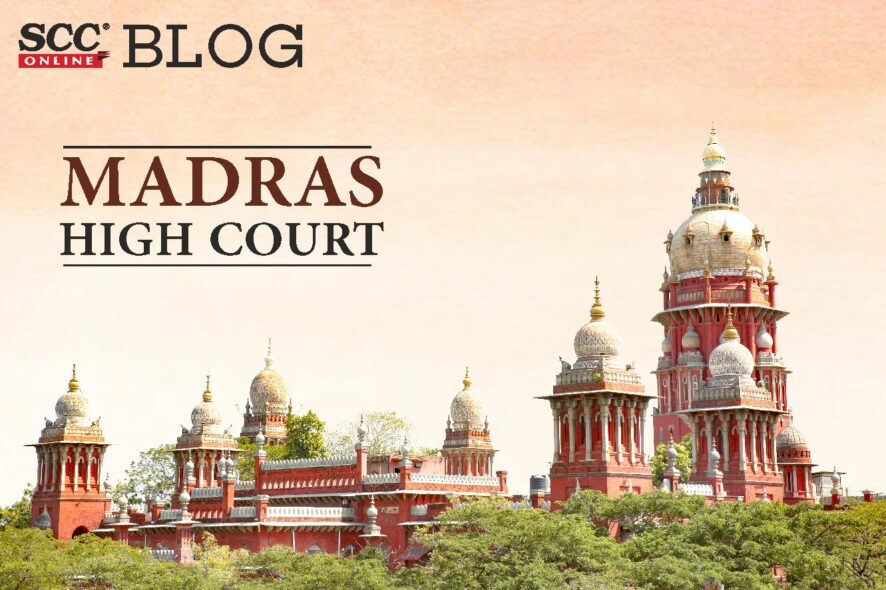There came a time when Rama was going to perform a huge sacrifice, or yajna, such as the old kings used to celebrate. But no ceremony in India can be performed by a married man without his wife; he must have the wife with him, the sahadharmini, the “co-religionist” – that is the expression for a wife. The Hindu householder has to perform hundreds of ceremonies but not one can be duly performed according to the shastras, if he has not a wife to complement it with her part in it. Now Rama’s wife was not with him then, as she had been banished. So, the people asked him to marry again. But at this request Rama for the first time in his life stood against the people. He said, “this cannot be. My life is Sita’s”. So, as a substitute, a golden statue of Sita was made, in order that the ceremony could be accomplished”.
[Lectures of Swami Vivekananda, California on 31-01-1900]
Madras High Court: G R Swaminathan, J. allowed a couple to solemnize their marriage virtually, having sanction under Section 12 Special Marriage Act, 1954 wherein the petitioner-bride was a resident from Kanyakumari and her groom was an American national. The Court cited various historical, mythological references along with international covenants and foreign law that supports virtual weddings. It remarked that since law has to keep pace with the march of technology, the choice of the parties being online mode very much passes legal muster.
A joint application was filed before the respondent under Section 5 of Special Marriage Act, 1954; notice was thereby published, and objections were received which was found to be unreasonable. The mandatory 30 days period expired on 12-06-2022. The parties appeared before the respondent on 13-06-2022 but did not facilitate the solemnization of marriage in his presence. Rahul could not wait further as he had to return owing to Visa requirements. Now the demand made by the parties is that they should be allowed to solemnize their marriage under Section 12 of the Act even though the bride is in India and the bridegroom is in USA.
The writ petition was filed under Article 226 Constitution of India, to issue a writ of mandamus, to direct Sub Registrar (‘respondent’) to solemnize the marriage of Vasmi Sudarshini (‘petitioner’), a resident of Kanyakumari with bridegroom namely Rahul Leena Madhu, a US national, through video conference and register the same under Special Marriage Act, 1954 and issue marriage certificate by considering the representation of the petitioner dated 06-07-2022 within the time stipulated by the Court.
The Court noted that one has read in history books that a Rajput bride can marry a Rajput warrior by garlanding his sword. Soldiers of First World War were allowed to marry their sweethearts in the United States through interchanging a marriage contract by mail subject to non-contravention of State statutes; Ernest Lorenzen had written a scholarly article in Harvard Law Review on “Marriage by Proxy and The Conflict of Laws” which states marriage by proxy has been expressly sanctioned by law in three of the continental countries — Belgium, France and Italy and that it was allowed by Roman Law and Canon Law.
Thus, the Court further noted that in this case, the parties do not propose to conduct proxy marriage as the bridegroom will be very much present. The only distinguishing feature will be his presence being virtual and not physical. Section 12 of Special Marriage Act, 1954 does not exclude virtual presence.
The Court observed that Singapore had enacted Covid-19 (Temporary Measures for Solemnization and Registration of Marriages) Act, 2020 providing for solemnization and registration of marriages using remote communication technology. Eligible couples may solemnize their marriage online through a video link. Even statutory declarations can be made virtually. According to school of thought in Pakistan, marriage can be performed through Skype and there is no need for bride or groom to join their Nikah ceremony personally.
The Court opined that the right to marry being a fundamental human right, Sections 12 and 13 of Special Marriage Act, 1954 should be so construed as to effectuate this right. Section 12 (2) Special Marriage Act, 1954 states that marriage may be solemnized in any form which the parties may choose to adopt which happens to be online mode in the instant case.
Thus, there being no legal impediment, the Court directed the respondent to facilitate the solemnization of the marriage of the writ petitioner with Rahul L. Madhu in the presence of three witnesses through virtual mode. Once the declaration is made as per Section 12 (2) Special Marriage Act, 1954, the marriage shall be deemed to be complete and binding on the parties.
Further, the petitioner was directed to affix her signature in the marriage certificate book both for herself and on behalf of Rahul L. Madhu (as the petitioner has power of attorney of Rahul L Madhu), the marriage certificate will be issued under Section 13 Special Marriage Act, 1954.
[Vasmi Sudarshini v. Sub Registrar, WP (MD) No. 15511 of 2022, decided on 28-07-2022]
Advocates who appeared in this case :
Mr. M. Gnanagurunathan, Advocate, for the Petitioner;
Mr. K. S. Selvaganesan Additional Government Pleader, Advocate, for the Respondent.
*Arunima Bose, Editorial Assistant has reported this brief.







